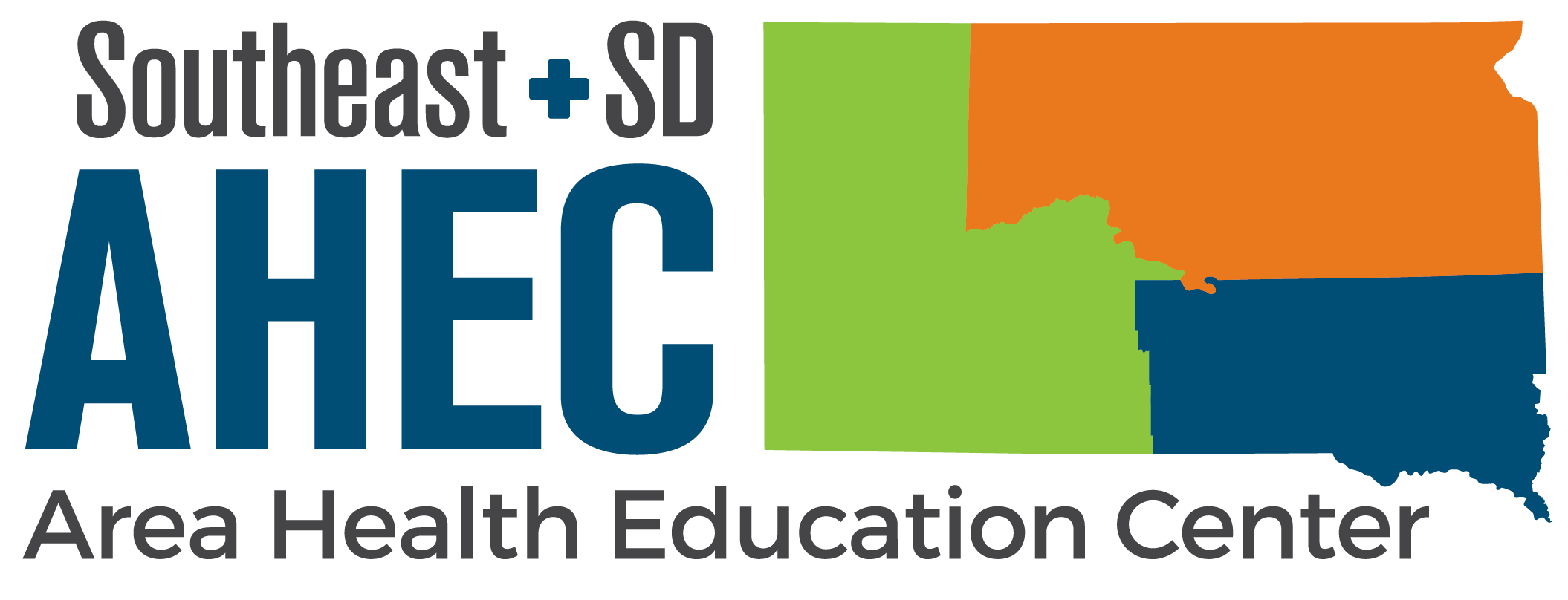 Continuing education is important to many professionals, including those in healthcare. Yankton Rural AHEC offers continuing education opportunities across South Dakota across many disciplines. A sample of programs include Preceptor Training, Improving Veterans Care, Adult Immunization, Mandatory Reporting Laws Pertaining to Prevention of Violence to Women.
Continuing education is important to many professionals, including those in healthcare. Yankton Rural AHEC offers continuing education opportunities across South Dakota across many disciplines. A sample of programs include Preceptor Training, Improving Veterans Care, Adult Immunization, Mandatory Reporting Laws Pertaining to Prevention of Violence to Women.
One objective of the Yankton Rural AHEC is to assist in creating a sustainable healthcare workforce in our rural/frontier South Dakota service area. Professionals in these areas can maintain strong skills while in their home communities.
Professionals have a key role in other aspects of Yankton Rural AHEC’s activities. Through events like Scrubs Camps, they provide information to students considering healthcare careers. Professionals also reach students by field experience mentoring programs. Mentoring provided during the summer experience program of the Rural Experiences for Health Professions Students (REHPS) brings textbooks to life.
“Having preceptors who were excited about what they do made us want to learn. I cannot thank the hospital and staff enough for a wonderful four weeks!” — Elizabeth Hoffman, physician student at the Sanford School of Medicine, University of South Dakota
Talking to Patients and Their Parents about HPV 
With patients aged 11-12 years, start the vaccine discussion with their parents by making the following recommendation: “Now that your child is 11 (or 12) years old, they are due for three vaccines today to help protect them from meningitis, HPV cancers, and pertussis—or whooping cough.”
Many parents are accepting of this bundled recommendation because it demonstrates that HPV vaccination is a normal part of adolescent vaccination. Parents may be interested in vaccinating, yet still have questions. Some parents might just need additional information from you, the clinician they trust. Clarify what the parent’s question is or what additional information they need.
- For parents who have a question or need more information about “why now/why 11-12?” you can tell parents:
“Like with all vaccine-preventable diseases, we want to protect your child early. If we start now, it’s one less thing for you to worry about. Also, your child will only need two doses of HPV vaccine at this age. If you wait, your child may need three doses in order to get complete protection.
We’ll give the first shot today and then you’ll need to bring your child back in 6 to 12 months from now for the second dose.”
- If a parent has a question or needs more information about “How long can we wait and still give just two doses?” you can say:
“The second dose would have to be given before the 15th birthday, which means the first dose would need to be given before age 14, in order to get both doses in time.
However, I don’t recommend waiting to give this cancer-preventing vaccine. As children get older and have busier schedules, it becomes more difficult to get them back in. I’d feel best if we started the series today to get them protected as soon as possible.”
- For patients aged 9-14 who have already had two doses given less than 6 months apart, you can tell parents:
“In order for the new 2-dose schedule to provide protection the second dose needs to be given at least 6 months after the first dose. Because your child already started the HPV vaccine series and received the first two doses less than six months apart, we’ll need to give a third dose.”
- For parents who ask about the duration of protection or how well the vaccine will work with just two doses, you can say:
“Studies have shown that 2-doses of HPV vaccine work very well in younger adolescents and we expect the same long-lasting protection with 2 doses that we expect with 3 doses.”
